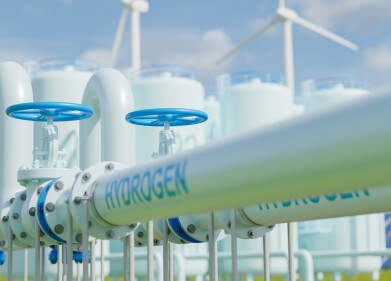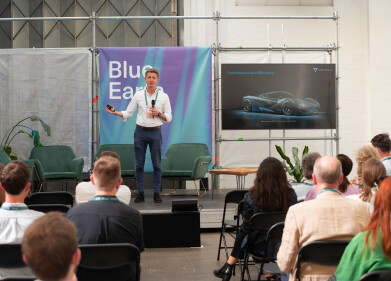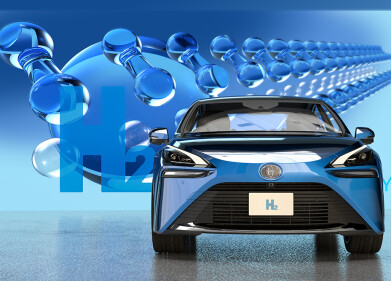Hydrogen fuel
How Do Hydrogen Fuel Cells Work?
Nov 18 2021
After so many successes in recent weeks, it feels like there is electricity in the air at COP26 – and on the minds of its attendees. All throughout the exhibition floors and lecture theatres, the prospects of fully-electric transport are being considered and displayed. But among the myriad questions that all of these speeches and showcases raise, one is unavoidable: how are we going to cleanly and efficiently generate all of this electricity?
Many, including Tesla, Inc. CEO Elon Musk, have been evangelical about the potentials of lithium batteries, pouring millions into mining and manufacturing operations in hopes of mastering this scarce resource. But a persistent, long-standing fringe have a different obsession. And this time, they’re after the most abundant element in the universe.
What’s the Big Idea?
In recent years, hydrogen fuel cells have proven immensely scalable and have come to be used in growing numbers of planes, trains and automobiles (if you’d like more information on this, take a look at our articles on each of these developments). For many, however, these fuel cells remain misunderstood, causing a great deal of hesitation in up-take.
Perhaps, then, it is worth going back to basics and learning the secrets of this simple but potentially world-changing technology. So, let’s start at the beginning: what’s a fuel cell?
Well, the simple answer is that it's a type of device in an electrical circuit that uses a chemical reaction to produce an electrical current. Unlike a battery, which stores all its energy internally and eventually runs out, a fuel cell relies on an external supply of fuel (like hydrogen) and an oxidizer (like oxygen). This means, in principle, a fuel cell doesn’t need to be replaced as long as fuel is supplied.
In a hydrogen fuel cell, hydrogen (H₂) enters at the anode, where it is split into protons (H⁺) and electrons (e⁻) through a process called oxidation. The electrons are routed through an external circuit, generating an electrical current, while the protons pass through an electrolyte to the cathode. At the cathode, oxygen (O₂) reacts with the incoming protons and electrons in a reduction reaction, forming water (H₂O) as the only by-product.
The electrolyte plays a crucial role, allowing the movement of protons while preventing the direct mixing of hydrogen and oxygen. This separation ensures that the chemical energy is efficiently converted into electrical energy.
Hydrogen fuel cells are not only clean and emission-free at the point of use, producing only water, but they also hold immense potential for applications in transportation, energy storage, and even aviation. However, the sustainability of hydrogen as a fuel depends on how it is produced, as many current methods involve significant emissions. Advances in green hydrogen production, such as using renewable energy for electrolysis, aim to make fuel cells a cornerstone of sustainable energy systems.
For just a taste of where hydrogen fuel cells might take us, take a look at the studies collated below and read through our article on What is Sustainable Aviation Fuel (SAF)?
Digital Edition
PIN 25.5 Oct/Nov 2024
November 2024
Analytical Instrumentation - Picturing Viscosity – How Can a Viscometer or a Rheometer Benefit You? - Sustainable Grease Formulations: Evaluating Key Performance Parameters and Testing Method...
View all digital editions
Events
Jan 20 2025 San Diego, CA, USA
Jan 22 2025 Tokyo, Japan
Jan 25 2025 San Diego, CA, USA
SPE Hydraulic Fracturing Technology Conference and Exhibition
Feb 04 2025 The Woodlands, TX, USA
Feb 05 2025 Guangzhou, China



















